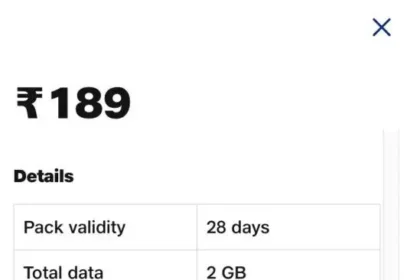Introduction
For Jio recharge scam in the fast-paced digital age, online mobile recharges are now part of our daily lives. You can recharge your number, pay a bill, or start new plans with just a few clicks on your smartphone—no need to go to a brick-and-mortar store or wait in a queue. Because of this ease, millions of Jio customers now use apps such as MyJio, Google Pay, PhonePe, and Paytm for instant recharges.
However, whereas this online transition has simplified life, it has also provided an entry point for a fresh crop of cyber scams. Jio recharge scam, customers are being targeted more and more by cheaters who exploit their faith in online systems and lack knowledge about internet threats. These Jio recharge scam, cheats resort to sly tactics—malicious websites, phony links, and impersonation attempts—to loot money and personal details from naive users.

More disturbing is that most of these scams appear and sound legitimate. You might get a notification that your Jio number will be deactivated or a call stating you’ve won a free recharge. Some even create spoof customer support numbers that appear on Google searches, tricking users into giving out OTPs or downloading remote access apps.
What Are Jio Recharge Scam?
Jio recharge scam is deceptive acts intended to manipulate users into divulging money, personal information, or sensitive financial data under the deceitful guise of assisting them with mobile recharges. Jio recharge scam, Scammers design websites or apps that look very much like the real Jio platforms. They replicate the Jio logo, almost identical design, and even so-called official-sounding domain names so that everything appears legitimate. Others send you threatening SMS messages stating that your number will be suspended if you do not recharge at once—urging you to open a link or call some pseudo helpline.
Most of the victims are tricked due to the sense of urgency induced. Notifications such as “Recharge now to prevent suspension of service” or “You have won a free Jio recharge!” are prepared to catch one unaware and force them into hasty action without checking the origin.
Top Types of Jio Recharge Scam
Spurious Recharge Apps & Sites
One of the most popular Jio recharge scam involves spurious apps and websites that are near-identical copies of authentic recharge websites. These websites adopt URLs that look similar to Jio’s domain.
After users input their Jio number and payment information, the money is either hacked or diverted without any recharge ever occurring. These apps can even install malware to hijack banking credentials or intercept SMS OTPs in some instances.
Phishing SMS & Emails
The scammers send messages that try to panic or instill a sense of urgency, e.g., “Your Jio number will be deactivated within 24 hours. Jio Recharge scam now using the link below.” The messages are accompanied by truncated or masked URLs that point to phishing websites.
Fake Customer Support Numbers
Yet another risky scam involves posting spoof customer care numbers on websites, forums, or even Google search pages. These fraudsters impersonate Jio support staff and walk you through bogus verification processes.
They might request your OTP, request you to scan a QR code, or seek remote access to your phone via applications such as AnyDesk or TeamViewer. Never believe in helpline numbers that are not provided on the official Jio website or MyJio application.
Social Media “Helpers
Social media platforms are filled with messages and postings offering unbelievable Jio recharge scam offers. These fraudsters say they are offering Jio recharges of Rs. 1,000—Rs. 5,000 for just Rs. 10—Rs. 50.
They typically demand a tiny test payment—”just Rs. 10 to show you are serious”—and once you send it, they block you or vanish. In some sophisticated versions, they provide fake screenshots of successful payments to win your confidence before asking for more money.
Fake Lucky Draws / Robo Calls
Robocalls and scam calls pretending to be from Jio have also become common. A voice message might claim: “Congratulations! You’ve won a free Jio recharge scam worth Rs. 5,000. Press 1 to claim now.”
Once the user presses the number, the call connects them to a scammer who asks for personal details, payment for “processing,” or access to your phone. These calls usually use spoofed numbers and professional-sounding scripts to seem genuine.
Some fraudsters also send fake SMS messages, such as “You’ve been selected in Jio Diwali Lucky Draw. Claim your Rs. 10,000 recharge now.” These are designed to lure users into revealing sensitive data.
Red Flags to Watch Out For
When you are dealing with online recharges and digital transactions, a single moment of negligence can cost you big time. Jio recharge scam take advantage of distraction, urgency, and ignorance to ensnare users. But if you are aware of what needs to be watched out for, it is very easy to identify a scam in time. Below are some typical warning signs that should immediately raise the alarm:
- Unofficial URLs and Domains
Fraudsters frequently design websites that are identical to the real Jio portal but with differences in domain names, though minor. For instance to Jio recharge scam:
- jio-offer. in,
- com,
- jio-recharge. store
- Desperate Messages Requesting Immediate Action
- Your number will be blocked in 2 hours!
- Recharge now, or you’ll miss incoming calls!
- Limited time cashback – only 5 minutes left!
- Requesting Sensitive Details (UPI PIN, OTP)
That’s an enormous red flag. Jio and other genuine businesses will never request you to provide:
- Your UPI PIN
- Bank account numbers
- Debit/credit card CVV
- SMS OTP
- Remote access to your device
- Too Good to Be True Offers
- “Recharge 10 and receive Rs. 1,000 cashback.”
- “Lifetime Jio plan just 99.”
How to Stay Safe to Jio Recharge Scam
Being safe from Jio recharge scam is not about having technical knowledge—it is about being aware and having some smart habits. These are some easy but effective steps that you can adopt to keep yourself and your family members safe: Begin by consistently using official and reliable channels for your mobile recharges. The safest bets are the MyJio app, Jio’s website ([www.jio.com](http://www.jio.com)), and popular payment apps such as Paytm, PhonePe, Google Pay, and Amazon Pay.
Then, never give out OTPs, UPI PINs, or bank information to anyone—whether they say they are from Jio customer care or not. It is common for scammers to pose as Jio recharge scam reps and cheat people into providing sensitive information. They might even request that you download remote access software such as AnyDesk or TeamViewer to “assist” you in fixing your recharge problems.
What to Do If You’re Scammed
First, act immediately to lock your accounts. If you’ve shared your bank details, UPI PIN, or OTP with a scammer, block your debit/credit cards right away using your bank’s mobile app or helpline. Log in to your net banking or UPI apps and change all your passwords and PINs. If remote access was given (via apps like AnyDesk or TeamViewer), uninstall the app, disconnect from the internet, and scan your device using a trusted antivirus tool.
Then, report the scam to the relevant authorities. You can report a complaint on the government cybercrime portal:
[www.cybercrime.gov.in](https://www.cybercrime.gov.in)
Select “Report Other Cybercrime”> “Financial Fraud” and provide the necessary information. You can contact Jio through:
- MyJio app support section
- JioCare on X (formerly Twitter): [@JioCare](https://twitter.com/JioCare)
- Official helpline: 198 (toll-free for Jio users)
To prevent further damage:
- Warn your contacts if the scam happened through your phone, email, or social media.
- Enable multi-factor authentication on all apps that support it.
- Keep a check on your bank account and UPI apps for the next few days for any suspicious transactions.
Above all, don’t be shy or remain quiet—anybody can fall prey to scams. The sooner you report and react, the greater your chances of reducing loss and arresting the scammers.
Conclusion
Of course, the convenience of the digital age comes with its own set of risks—particularly when it involves something as mundane as mobile recharges. Jio recharge scam is becoming increasingly sophisticated and target consumers through spurious apps, phishing links, scammers’ calls, and social media tricks.
The single most critical thing to keep in mind is this: Don’t panic. Be calm, aware, and vigilant. Scammers win when we panic or act quickly, but when we take time to check, we deprive them of their authority. If reading this article made you more informed, don’t silence yourself—share it with family and friends. You never know who might avoid being scammed because you shared this information.
FAQs
- Can I block Jio recharge scam numbers?
Yes, Jio can act against scam numbers once reported. If you’ve received scam calls or messages, report it instantly through the MyJio app, 198 (toll-free), or on www.jio.com. Although Jio might not be able to block third-party scam numbers in real time, your complaint aids its security team in tracing and shutting down suspicious traffic.
- Can I recover money if I’m scammed?
- Regrettably, it is difficult to recover money lost in a scam—but it is not impossible. If you are quick:
- Get in touch with your bank at once and request that the transaction be blocked.
- Inform the fraud at www.cybercrime.gov.in.
- Banks can occasionally reverse transactions or freeze accounts suspected of fraud. Speed is paramount, though, and usually works best in the first 24–48 hours.
- How do I recognize an authentic recharge website?
Quick checks are here:
- The URL must start with “https://” and only have “jio.com” in it.
- Check for misspellings, irregular layouts, or pop-ups.
- Avoid SMS, WhatsApp, or Telegram links. Instead, visit the MyJio app directly or manually type www.jio.com.
Reach out to Jio support directly first.
- Is it okay to use recharge agents around me?
Using physical recharge agents (such as mobile shops) is safe, provided they are genuine retailers. Just refrain from suspicious stalls or unauthorized sellers—particularly if they demand to hold onto your OTP or device. Always request a receipt and never give them your personal banking details, not even in a shop.
- How do I verify whether a customer care number is genuine?
- Official Jio support exists only via:
- 198 (from Jio number)
- 199 (for plan and balance details)
- MyJio app Support page
- Authenticated handle @JioCare on X (Twitter)
Never depend on numbers given on arbitrary sites or shared through messages. If you got a number through Google, cross-check it with Jio’s website or app before dialing.







